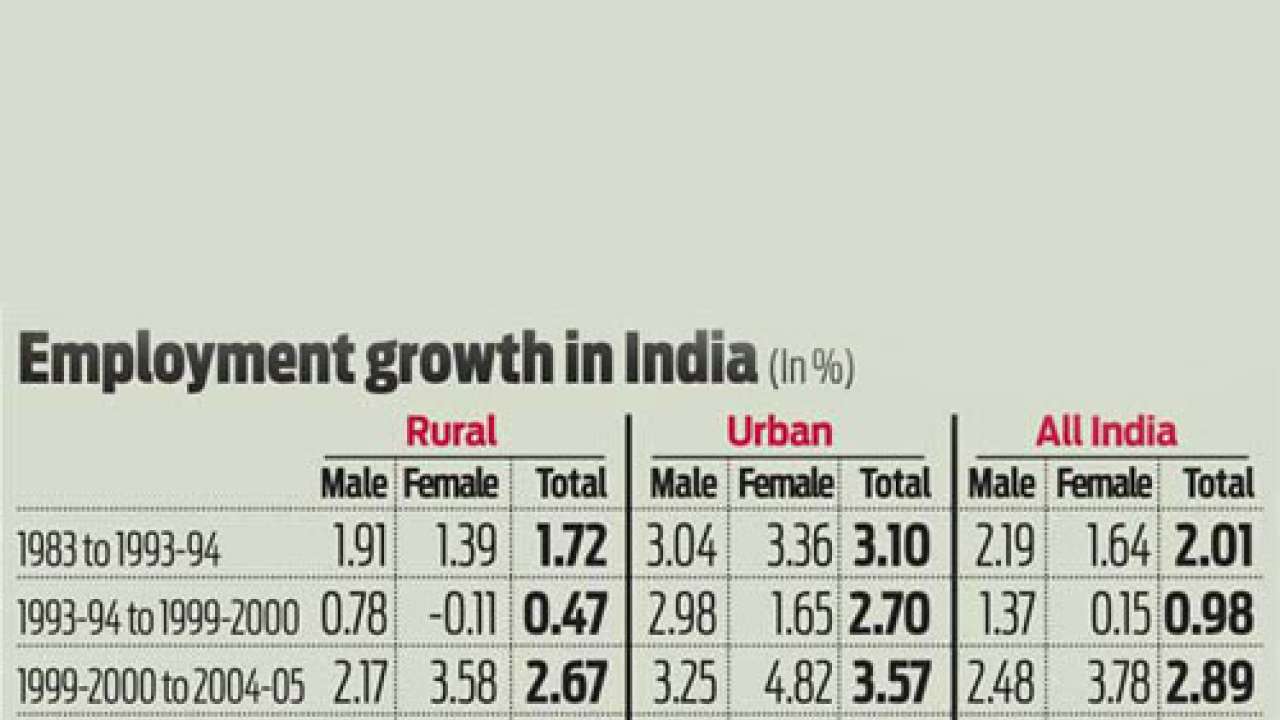
As more information starts coming out into the public domain (see table), it becomes increasingly evident that the best years for Indian job-seekers were during 1999-2000 and 2004-05. That was when the NDA was in power.
Conversely, the worst years for job seekers were 2004-05 to 2009-10. That was when UPA-I was in power. The figures for UPA-II are not yet out, but if market perception and the increasing queues of job seekers are anything to go by, they could represent the darkest years for a country that once sought to become a global power.
The figures become a lot more worrisome when one looks at actual numbers compiled by Institute of Applied Manpower Research, Planning Commission, and reported by Mint on September 29, 2013. These figures show that the NDA dispensation created around 60.7 million jobs while UPA-I (2004-05 to 2009-10) created just 2.76 million jobs.
A very good reason could be that state expense (over largesse) took precedence over development, in the ruling party’s bid to promote the image of its leading family. The government forgot that wealth generation must precede wealth distribution. It overlooked the fact that a nation’s pride and its growth depends on the number of jobs it creates, not on doles that potentates of erstwhile empires were fond of bestowing on a kowtowing and fawning public.
As a result, three things happened.
First, large industrial proposals for setting up steel plants, coal, copper, aluminium steel mines, and highways were delayed for one reason or the other. Some call it a suitcase by suitcase approach to granting clearances. Others call it concern for the rights of marginal landowners and tribals. Whatever the real reasons, the fact remains that projects that could create jobs got deferred. This wasn’t due to any global meltdown, or global economic conditions. It was home-grown, and entirely avoidable.
Second, illegitimate projects began flourishing. When legitimate clearances do not take place, the vacuum is quickly filled by the illegal. Look at the way illegal mining flourished and grew – especially in UPA ruled states (http://www.dnaindia.com/money/report-policy-watch-maharashtra-still-flirting-with--1883063). It debunks popular perceptions that illegal mining flourished only in Karnataka and Goa. Significantly, no figures are available for the North East, where much of illegal mining continues to take place.
The third result is most young folk have been rendered helpless, even desperate. Over 20 million people who enter the job market each year discovered that there were few openings. This has resulted in a backlog of around 100-150 million youth -- the numbers could be larger -- looking for jobs, furious at being shortchanged by their political leaders.
Some jobseekers went back to their villages, and started working on farmlands owned by their extended families. Others found shelter in schemes like MNREGA which promised payments against jobs for 100 days a year -- which is perversely ironic because the government first takes away jobs, and then tells people that they can be employed for 100 days a year as part of the dole. Without the fig-leaf of MNREGA, the numbers of unemployed should be a lot bigger.
Sadly, MNREGA also resulted in the destruction of jobs in the agricultural sector. It made agricultural labour so costly and unreliable that many farmers opted to employ highly expensive machines like cotton harvesters to do the farm work. Ordinarily, farmers would not have invested in expensive machines. But MNREGA left them with little choice. Expect the migration of rural folk to urban areas in search of jobs to accelerate in coming years and create even more political and social stress.
Moral: Focus on jobs, not on doles. Focus on wealth generation. That matters more for a growing country. Calling largesse ‘security’ does not alter economic underpinnings.